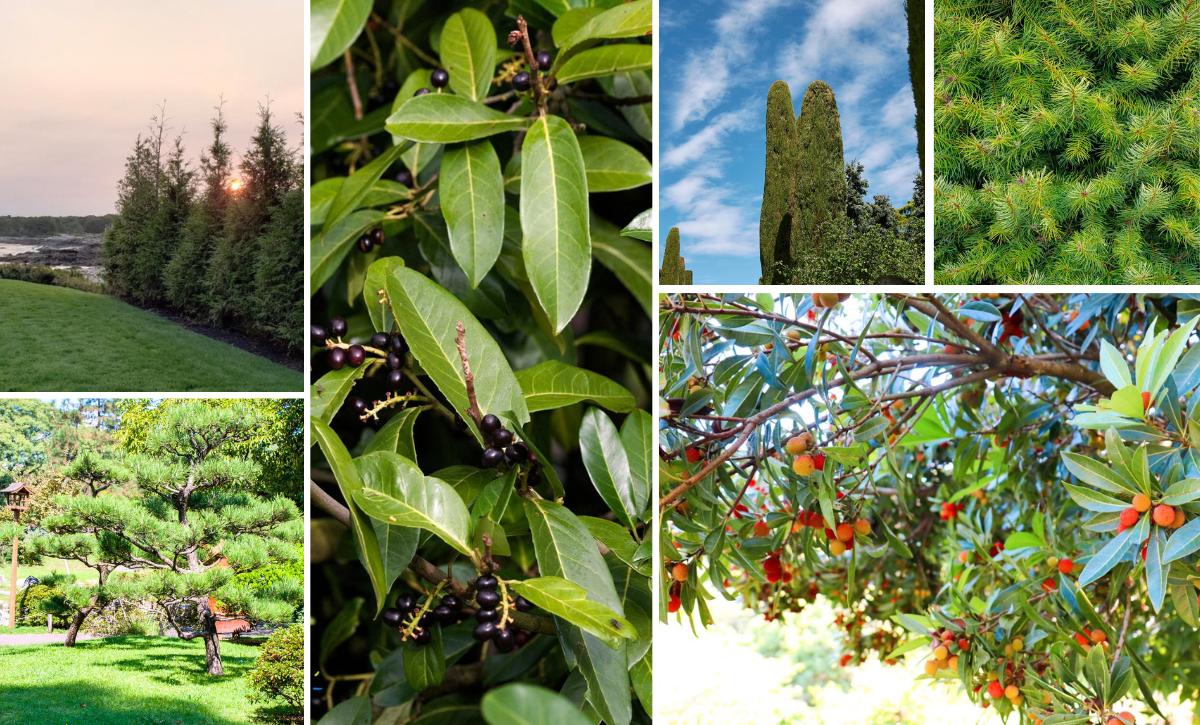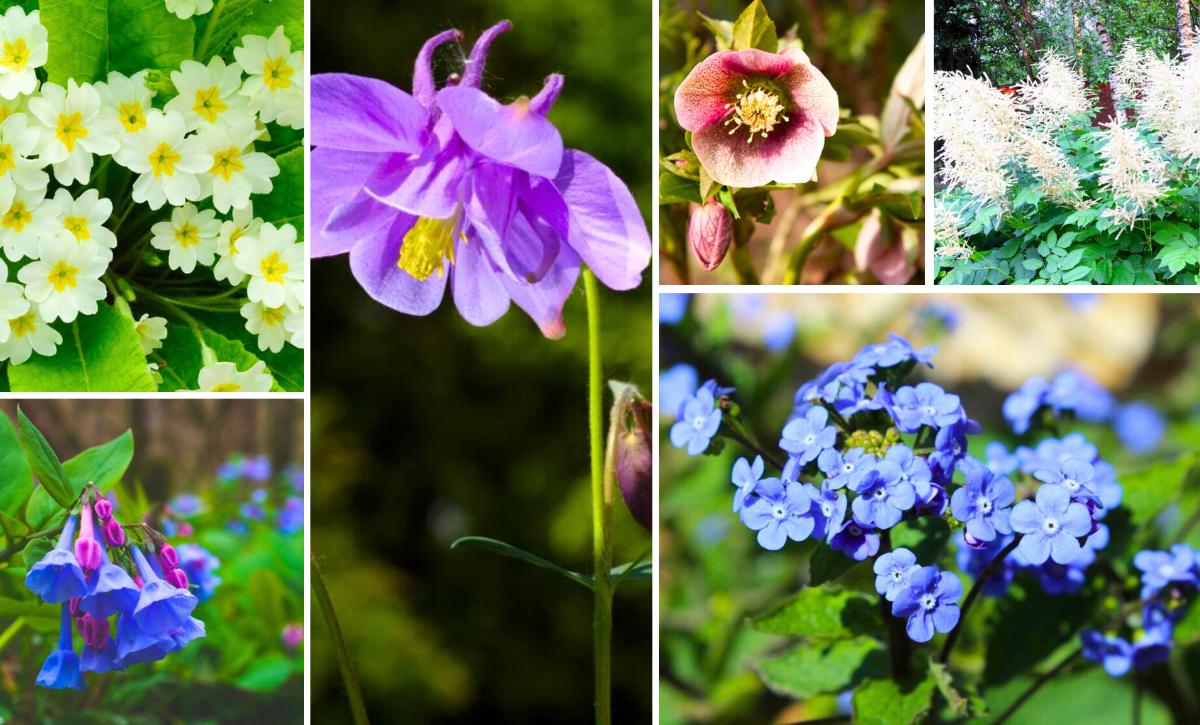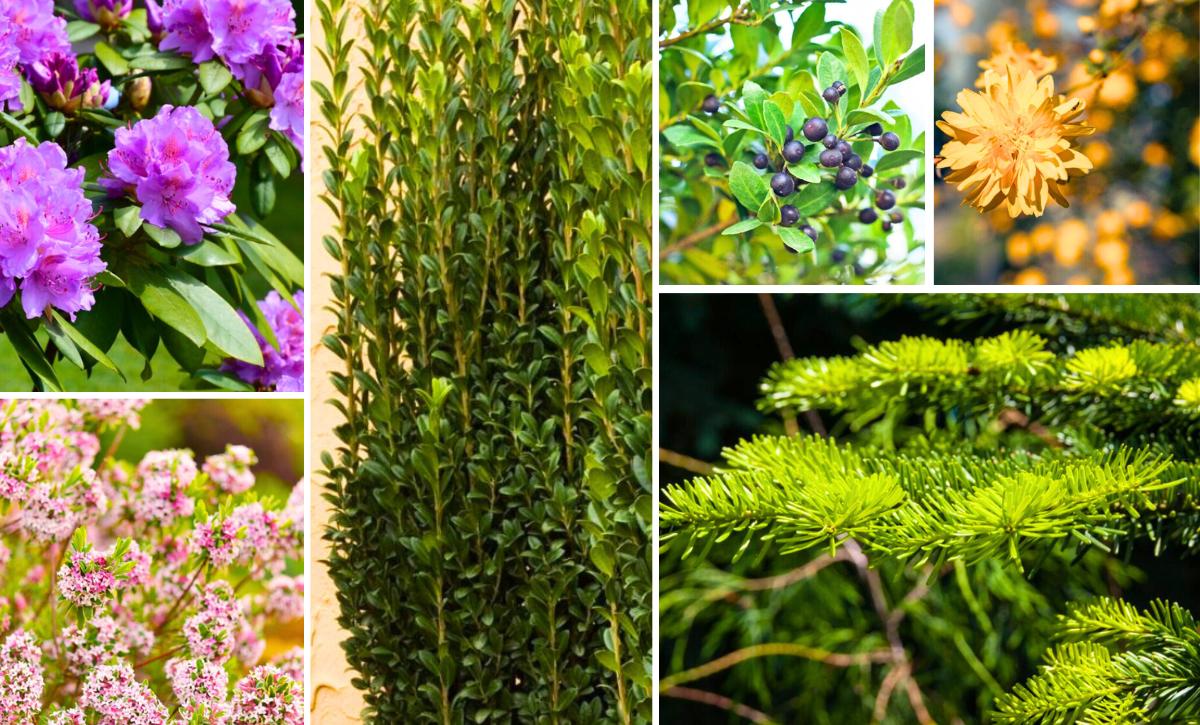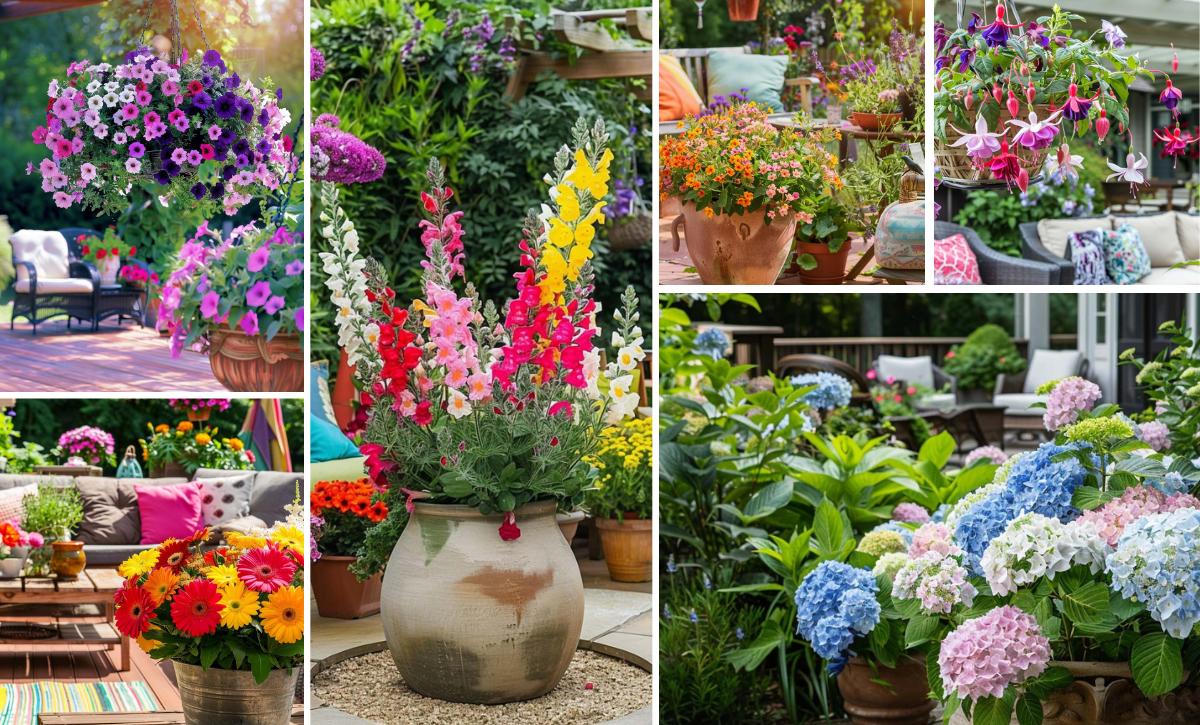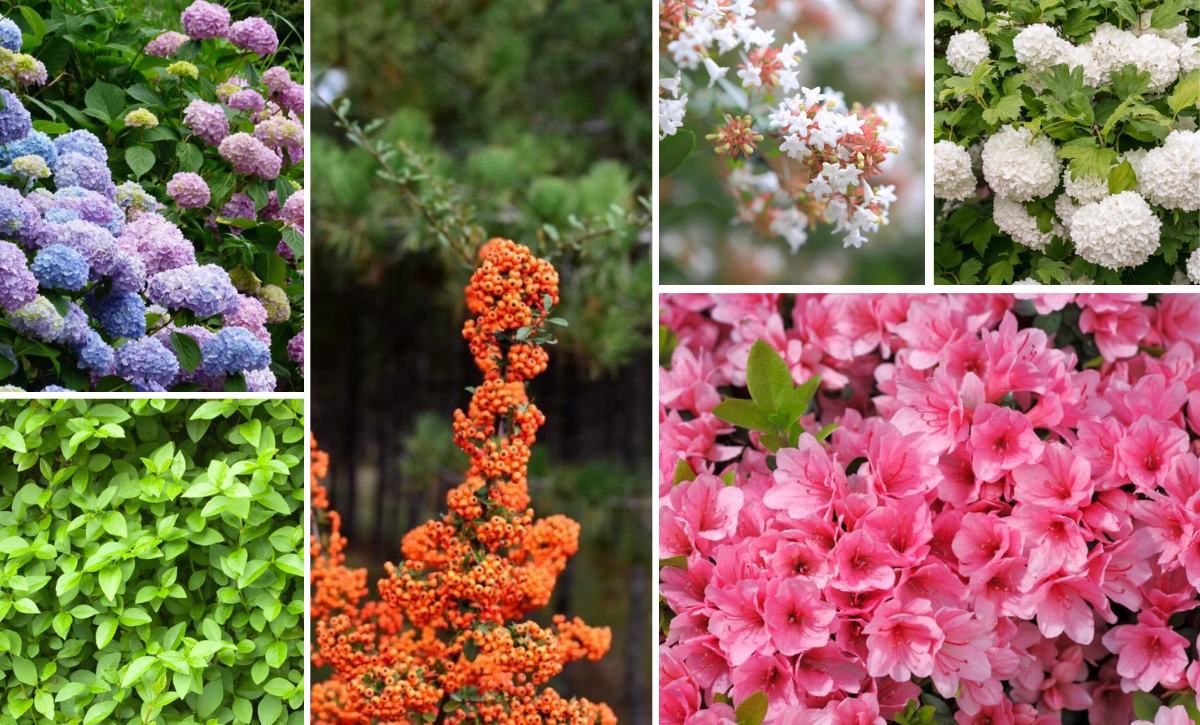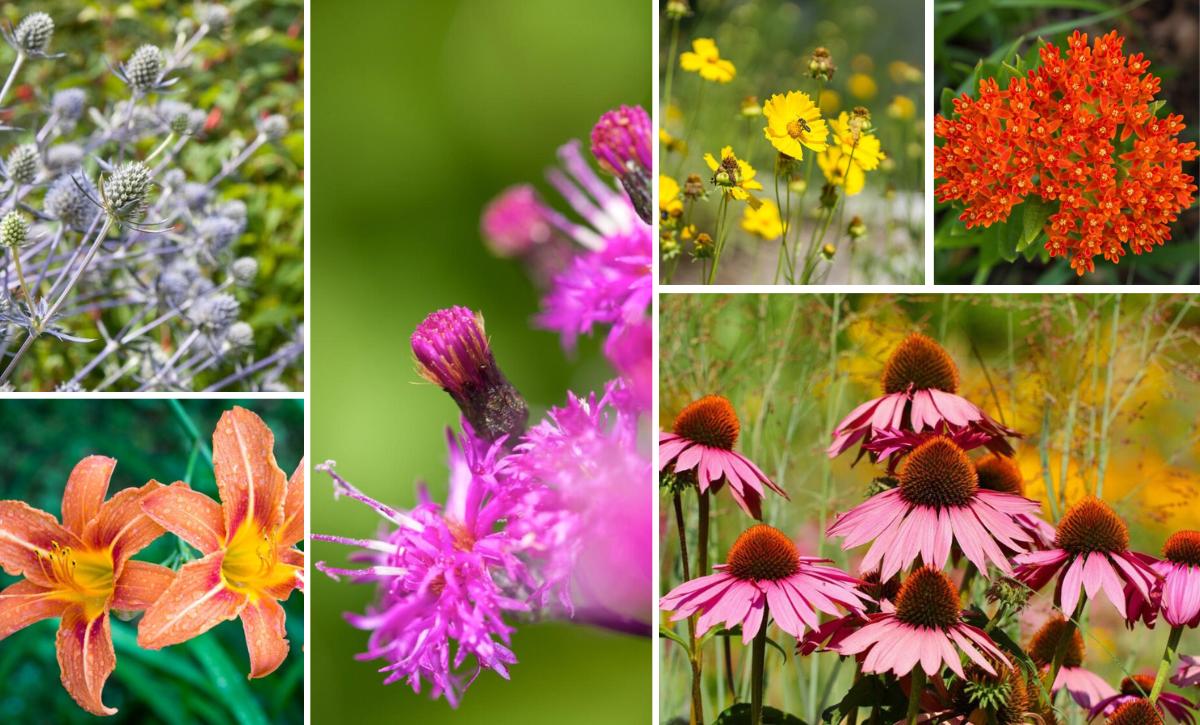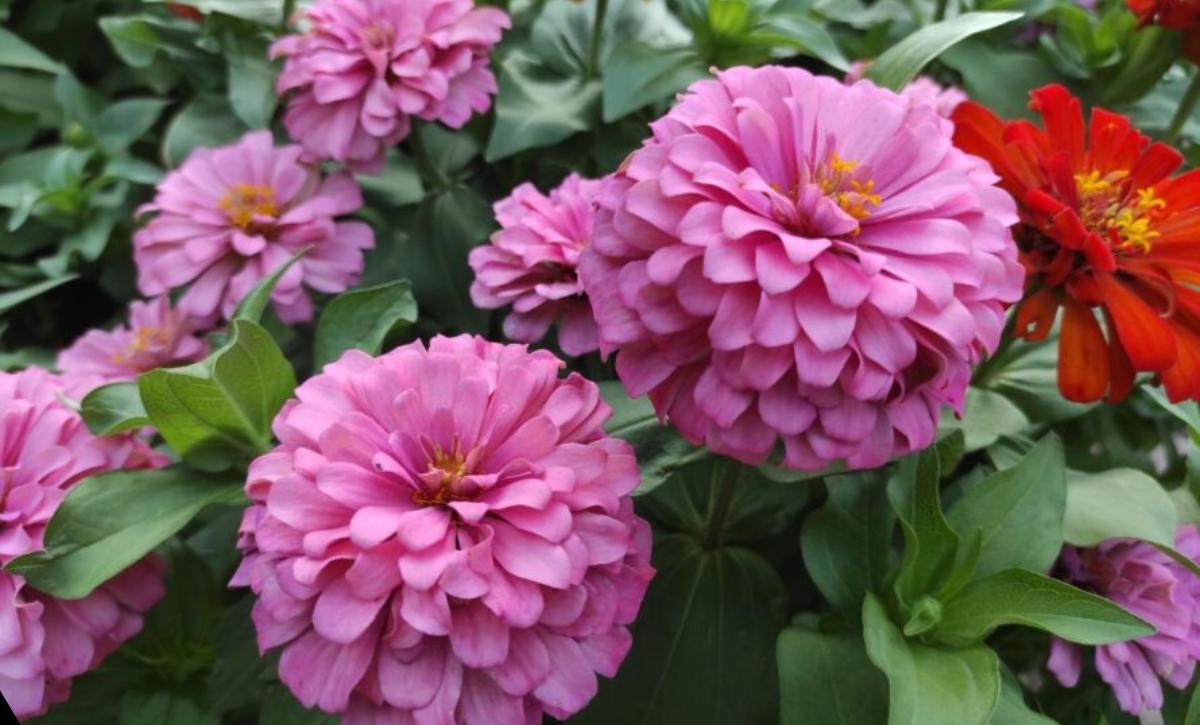The cacti family originates from exotic places but nowadays most of the species are successfully cultivated to beautify our outdoor rock gardens and indoor pots with their weird shapes.
The cherry on the pie is that cacti can bloom and when that happens they become the focal point of the room. The small and thorny plant transforms into a surprisingly delicate flower that can compare with the perfection of the orchids.
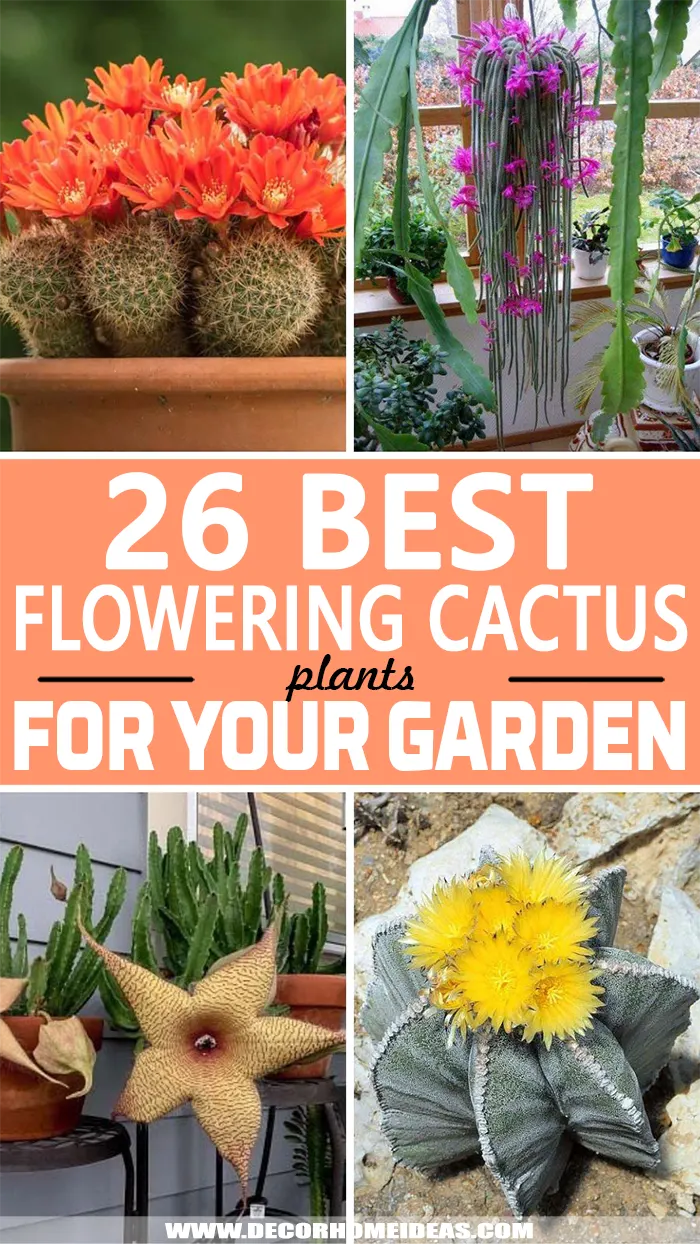
Check out our collection of Flowering Cactus Plants and get amazed by their unexpectedly unique beauty.
1. Bishop’s Hat Cactus
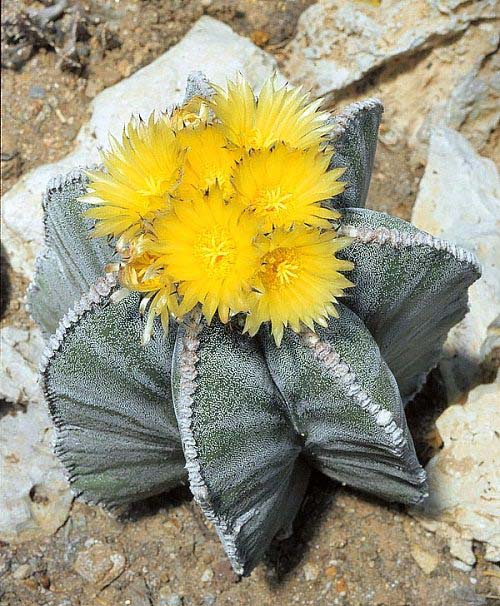
Native to northern Mexico, the Bishop’s Hat grows on limestone at 1500-2000 m height.
Its sculptural look is created by the succulent ribs highlighted by white curved scales.
It blooms with bell-shaped yellow blooms which spread a lovely fragrance. This cactus is fairly easy to grow but it matures slowly and is prone to rotting.
Botanical name: Astrophytum myriostigma
Flowering time: summer
via Monaco Nature
2. Old Lady Cactus
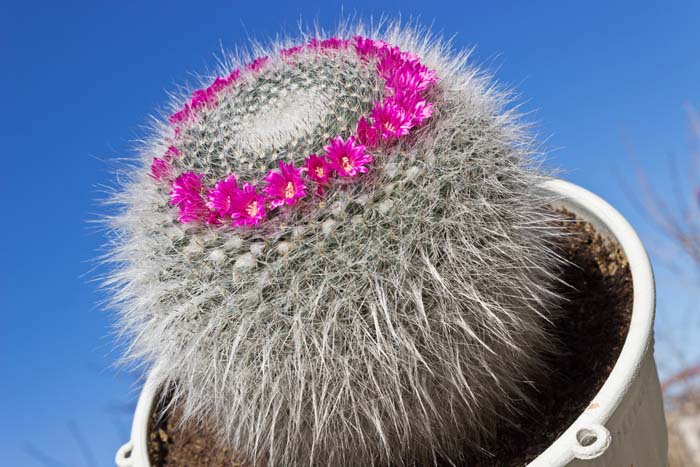
The Old Lady Cactus is met mostly in South America, in the southern parts of North America and in the middle terrains with deserts. Mamilaria is a beautiful cactus with an attractive oval shape. It is one of the easiest flowering cacti to grow and it likes the sunniest spots of the office or of home.
It blooms with small pink blossoms. Like all cacti, Mamilaria loves sunny places but also frequently watering in the summer.
Botanical name: Mammillaria hahniana
Flowering time: Spring and summer
3. Fairy Castle Cactus
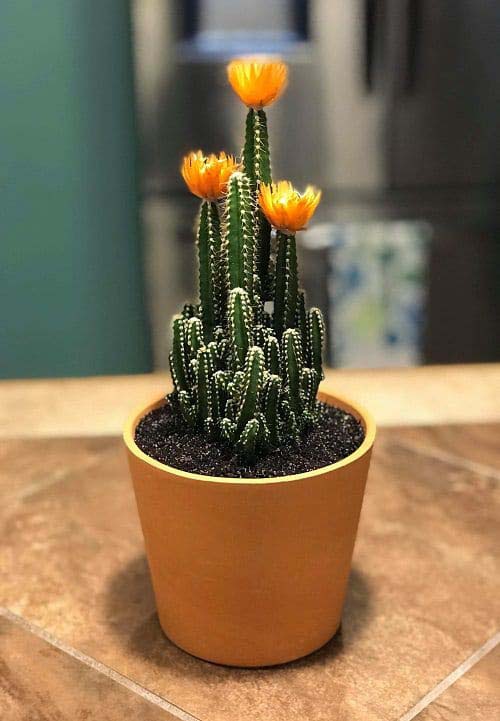
This is a delightful little cactus that can be grown inside your home and office. Its name comes from its shape featuring stems with five sides with woolly-based spines.
Over time it develops branches that slowly lengthen and produce the curious shape of the cactus.
Similar to all cacti, this one requires full sun and well-drained soil. As for the blooming, the fairy castle produces flowers rarely and under perfect growing conditions. It is interesting that the large white flowers bloom at night.
Botanical name: Cereus tetragonus
Flowering time: Spring and Summer After ten years of growth
4. Starfish Cactus
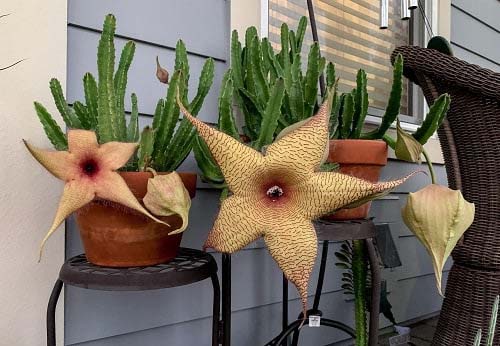
The Starfish Cactus grows in tropical and subtropical zones. It is a rear succulent and if you see it, it will be grown as an indoor plant.
The stems are spine-less and thick and consist of segments with a height of 10 cm. Its flowers are amazing- perfectly shaped five-ray stars in green and yellow. When the flower blooms it spreads a bad smell which attracts a lot of insects. This is very important for pollination.
This cactus does not like direct sun. If you grow it in a sunny spot during the hot summer days, the sun may damage it. The best place for the starfish cactus is a partial shade which is its native environment.
Botanical name: Stapelia
Flowering time: summer
5. Easter Cactus
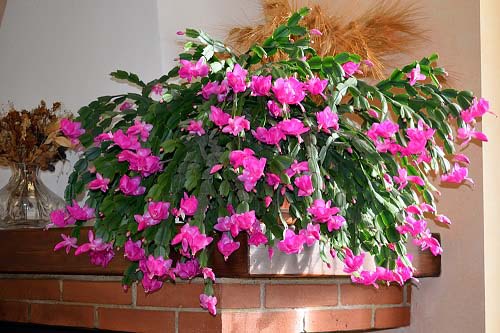
The Christmas cactus has spine-less stems dangling down in a cascade. They are very flat and with lengths of 4 to 6 cm. The end of the stems is not edged but cut and this is the place where the flowering blooms of the cactus appear.
They are colored in different shades or red, orange, pink and white. This flower is one of the most popular indoor house cacti because of its rich and long-lasting blooming phase in the cold seasons.
Botanical name: Schlumberger truncata
Flowering time: fall and winter.
6. Balloon Cactus
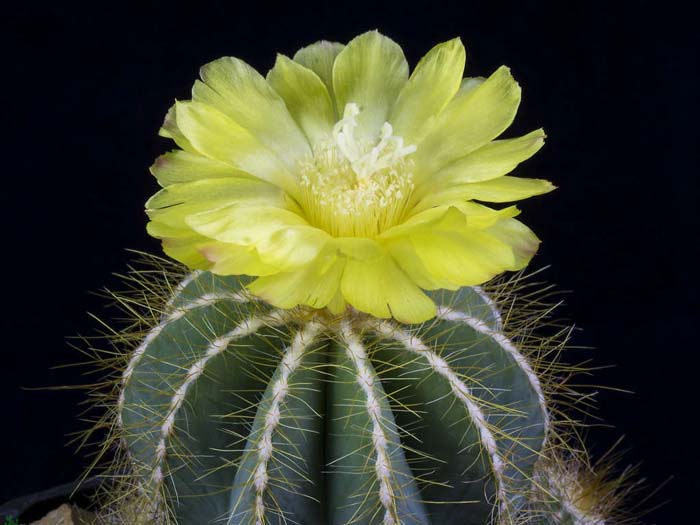
The Ballon Cactus is amazing! It blooms easily, it is easy to grow. An interesting fact about this cactus is that it is a protected species in the international red book. Its native environment is cool, dry fields up to 800 m.
It doesn’t like low temperatures so once temperatures drop down, move indoors.
The Parodia blooms with two large yellow flowers with shiny petals.
Botanical name: Notocactus magnificus
Flowering time: summer
7. Schlosser Cactus
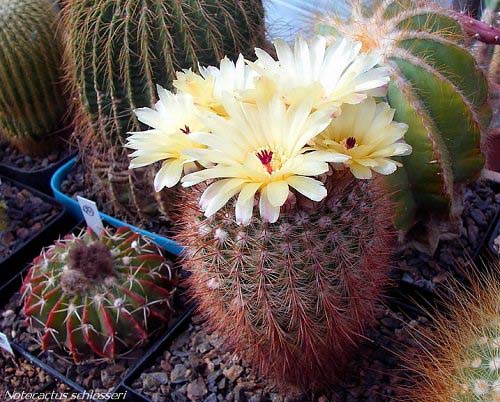
The Schlosser Cactus discerns with one stem with a short cylindrical or spherical shape. The matured cacti can reach a height of not more than 1 meter. The stems are ribbed and dark green. At the top part of the ribs, there are sheaves of spines in red and yellow colors.
The flowers are produced at the top of the stem and they have a bell or funnel shape. The color varies from orange, red or yellow. Unfortunately, the beautiful flower fades in 7 days.
Botanical name: Notocactus schlosseri
Flowering time: summer
8. Rosy Pincushion Cactus
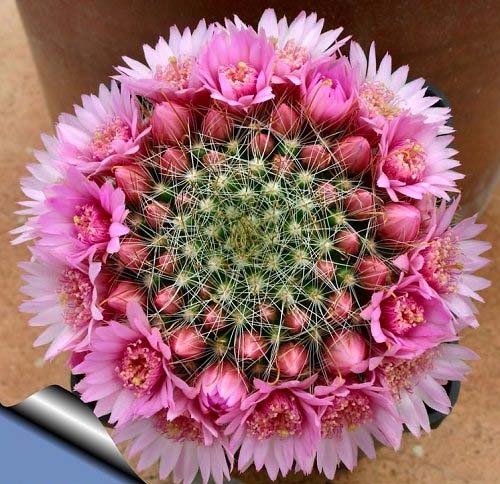
The Rosy Pincushion Cactus is native to Mexico. Its stem is glossy green with either a spherical or oval shape. The cactus is small, usually high up to 12 cm ad 8 cm in diameter.
The flowers are funnel-shaped and concentrated in the top part of the cactus. Their color is pale violet and reaches 2 cm in diameter.
Botanical name: Mammillaria zeilmanniana
Flowering time: the flowers can come at any time of the year
9. Lincoln Gem Cactus
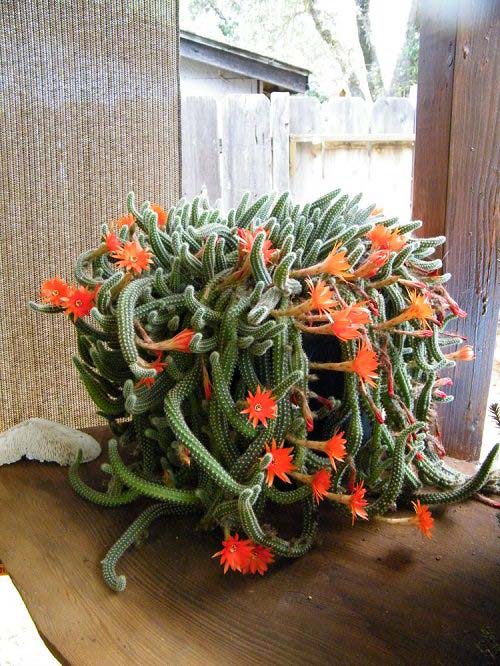
It is native to Argentina but its name comes from the Greek word chamai which means creeping on the ground.
This cactus reaches a height of up to 10 cm with a very small diameter of the stem, up to 1 cm. Its branches are long with a typical light green color. The flowers appear after the third year of growth and bloom only for two days.
The flowers are wider than the stems- usually with a diameter of 3 cm and vivid orange color.
Botanical Name: Chamecereus silvestri
Flowering time: summer
10. Powder Puff Cactus
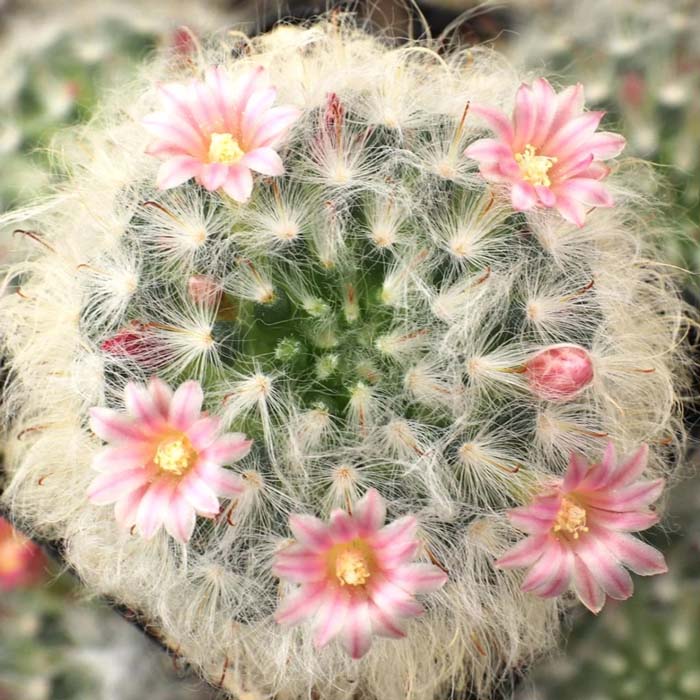
The Powder Puff cactus is a protected rare plant in Mexico. It features a hemispherical shape and white soft spines that cover it thickly.
It grows quickly, producing small round offsets around the parent plant. The flowers are small and usually white, yellow, pink or red in color.
If you grow this cactus in the garden, this is only possible for zones 9b to 11b. For the rest, the plant should be potted and placed indoors.
Botanical name: Mammillaria bocasana
Flowering time: spring
11. Rat Tail Cactus
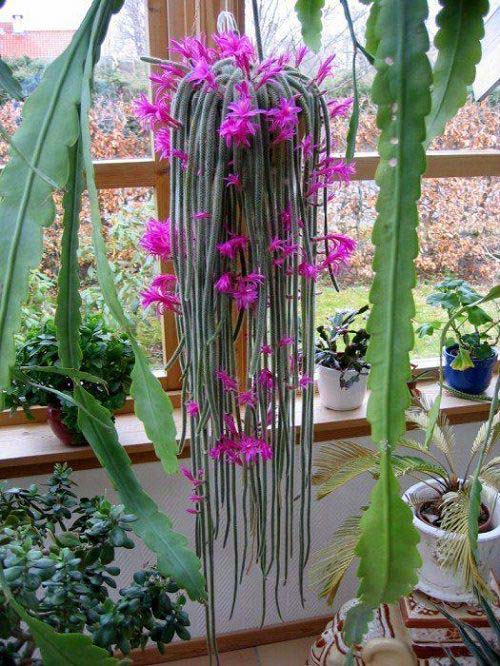
Aporocactus is native to Mexico. In nature, there are 6 species but in a domestic environment, only Aporocactus flagelliformis can be grown. It features light green stems with ribs dangling from the pot. The spines are short reminding fur and with yellow-brown color.
The flowers of this cactus are dazzling pink and large reaching 7 cm in diameter.
They give the cactus an attractive look, especially when they are plenty. Aporocactus doesn’t require much care. You should only cut the thinned and damaged sprouts.
Botanical name: Aporocactus flagelliformis
Flowering time: end of winter
12. Silver Torch Cactus
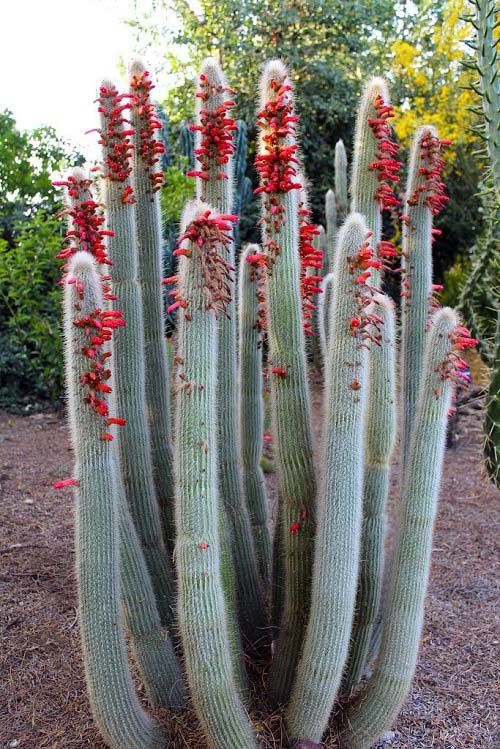
The Silver Torch Cactus is considered to be the most famous straight cacti species. It features straight green-grey stems which can grow up to 3 m in height. Their diameter is only 15 cm. The spines cover thickly the stems which gives the “hairy” look of the cactus.
It produces many red flowers which are closed but long in a tube shape. Only cacti higher than 45 cm can develop flowers
Botanical name: Cleistocactus strausii
Flowering time: end of summer
13. Dutchman’s Pipe Cactus
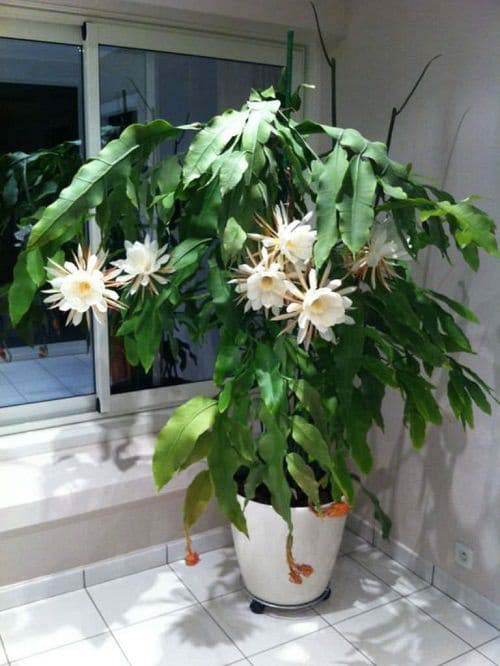
The Dutchman’s Pipe Cactus reminds a water lily or an orchid but it is a species in the cacti family that blooms at night with large flowers. Its stems have mutated into flat, wide and fragile leaves which explains why new leaves emerge from the existing ones.
The flowers look like those of the water lily- large in diameter, appr. 20 cm, and white. The first time you can admire its flowers is after 3 years of growth and only at night when the petals open up.
Botanical name: Epiphyllum oxypetalum
Flowering time: spring and summer.
14. Orchid Cactus
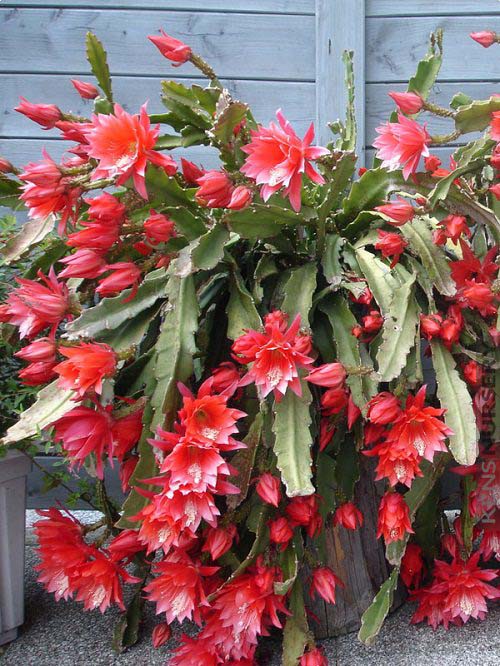
The orchid cacti are recognizable by their long, succulent, flat stems which dangle down the cactus base. The foliage can grow up to significant lengths.
What makes this species most attractive is the flowers they produce. They come out from notches in the stem and produce edible fruits when pollinated. The blossoms are quite showy revealing delicacy and perfection but unfortunately, fade away fairly quickly.
Botanical name: Epiphyllum hybrids or Phyllocactus
Flowering time: summer
15. Spider Cactus
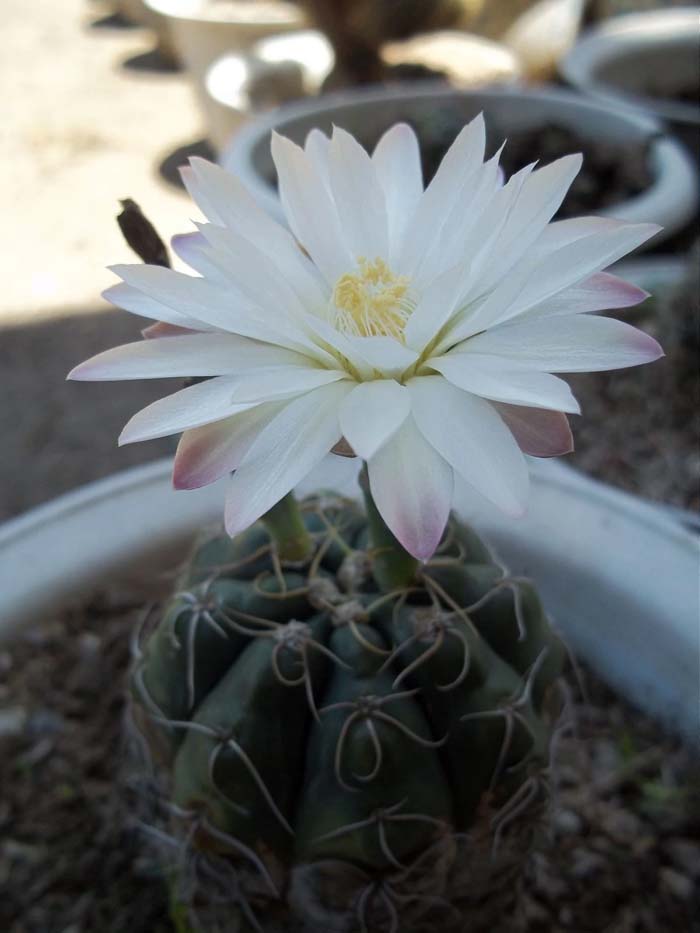
The spider cactus got its name from the small curved spines reminding spider legs. The stem is glossy and spherical, with rounded ribs. The spines are soft. This is one of the easiest-to-grow flowering cacti requiring full sun, enough water and fertilizing from time to time.
It blooms with creamy white flowers which are quite large with sizes up to 7 cm in diameter.
Botanical name: Gymnocalycium oehnanthemum
Flowering time: summer
16. Beavertail Cactus
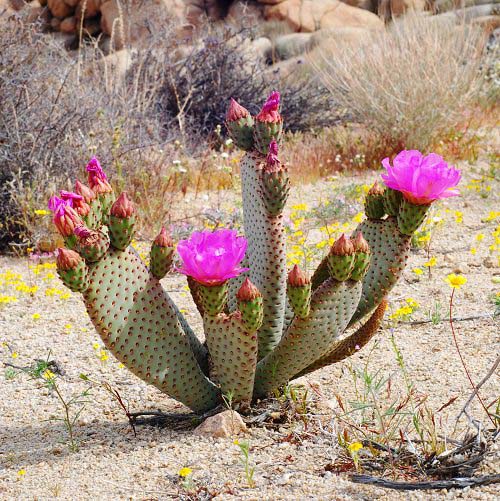
Beavertail Cactus is a medium-sized cactus that produces rose-colored flowers. One plant may feature hundreds of flattened pads which are blue-grey.
The flat shape of the stems and their arrangement in clusters makes this cacti species an attractive addition to a rock garden.
Botanical name: Opuntia basilaris
Flowering time: spring to early summer
17. Aylostera Cactus
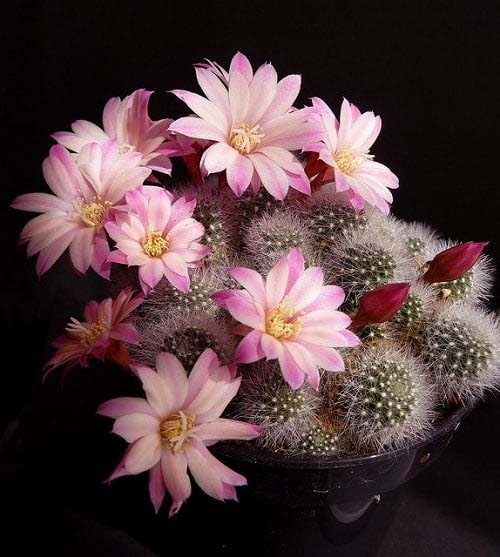
The Aylostera Cactus is a small clustering cactus forming low groups of branches at ground level. It produces pale pink flowers from the lower half of the stems. The flowers are so large compared to the stems that sometimes they hide them.
This cactus is slow growing but easy to care for. It can be part of a rocky garden or a fascinating indoor garden.
Botanical name: Rebutia narvaecensis
Flowering time: spring
18. Sulcorebutia Cactus
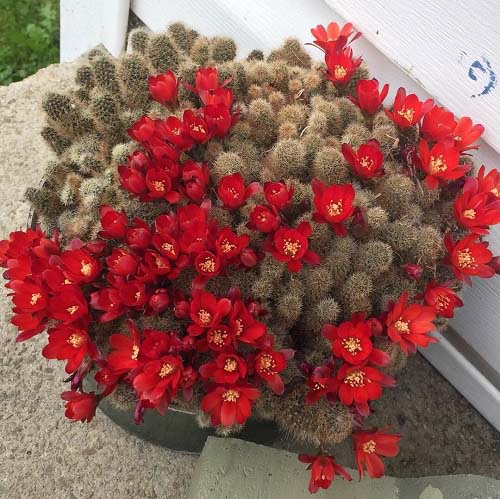
The Sulcorebutia Cactus is one of the most common cacti in the world. It features a globular and cylindrical stem with a flattened top. It is covered with many and vivid in color flowers. It grows slowly and develops strong and long spines.
The stem varies from green shades to grey-brown color. Its root system is thick and strong. Flowers appear in the top area of the stem and form an attractive wreath.
Botanical name: Sulcorebutia albissima
Flowering time: late spring
19. Lobivia Cactus
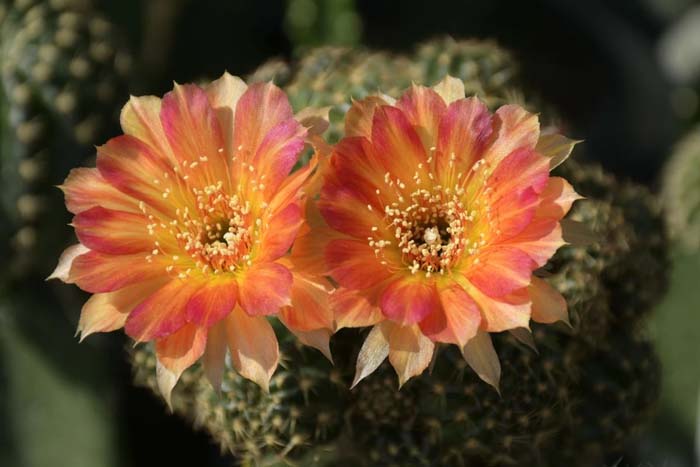
The Lobivia Cactus takes its name from its country of origin- Bolivia. It is a dwarf succulent with a cylindrical stem and large flowers which are the size of the stem.
It loves sunny places with hot temperatures and moderate watering from March to September. In winter, watering should be minimized to once a month.
Botanical name: Echinopsis densispina Werderm
Flowering time: spring
20. Mammillaria Cactus
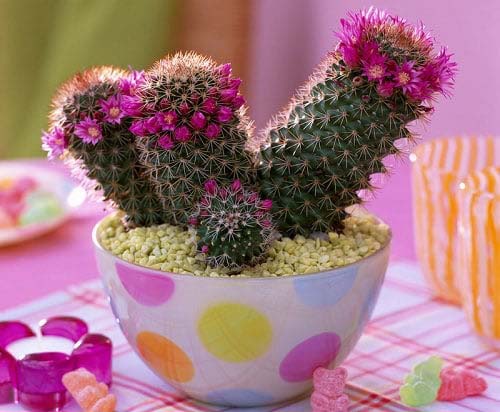
The Mammillaria Cactus grows with a globe stem which quickly branches to form clusters.
The stems are spherical and green but covered with thick white spines giving them a greyish color.
The flowers are in a bell shape and in bright purple color.
Botanical name: Cochemiea guelzowiana
Flowering time: summer
21. Monk’s Hood Cactus
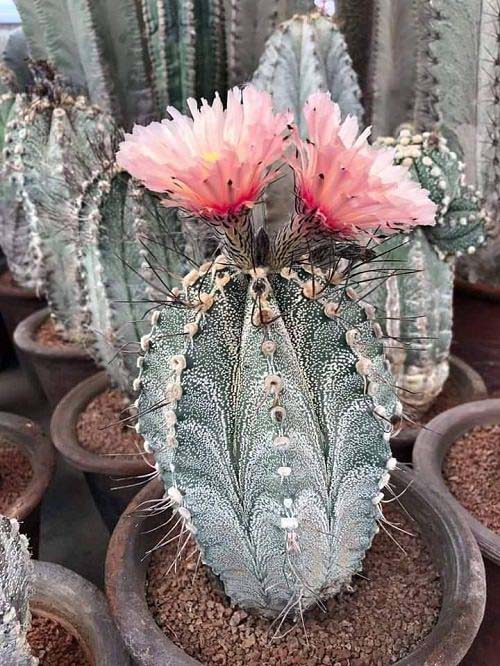
The monk’s hood cactus is a solitary cactus with a cylindrical form that reaches io to 2 m in height and 30 cm in width. The surface of the succulent is covered with white flakes which protects it from the sun.
This plant can be used as a centerpiece in a rock garden where the soil is well-drained. It prefers filtered light or shade and is cold-tolerant to temperatures up to 25 °F.
Its flowers are long and yellow appearing in summer.
Botanical name: Astrophytum ornatum
Flowering time: summer
22. Rebutia Cactus
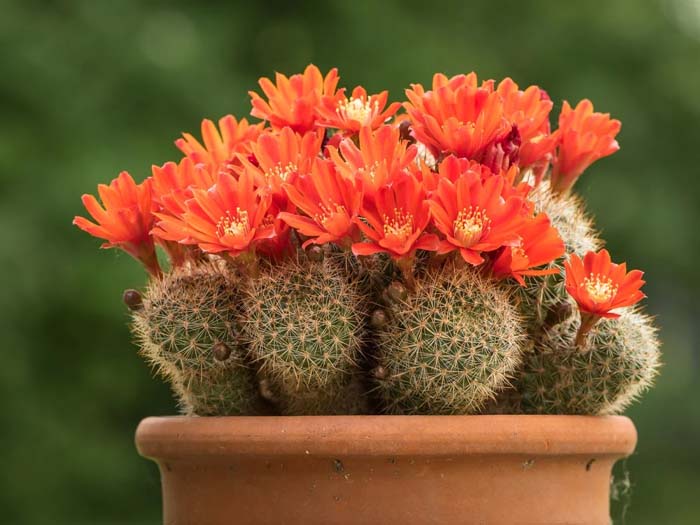
The Crown Cactus is a lovely succulent that offers delicate flowers in fire-orange shades. This cactus is one of the toughest ones judging from its native location on high slopes with severe environmental conditions.
It has a small, cylindrical stem with vertical ribs. Its diameter is approximately 2 cm but it can grow a lot in height. The flowers appear at the top of the stem and are also 2 cm in diameter.
If good conditions are provided, the flowers can remain for a few weeks.
Botanical name: Rebutia heliosa
Flowering time: spring
via Garden Chronicle
23. Golden Barrel Cactus
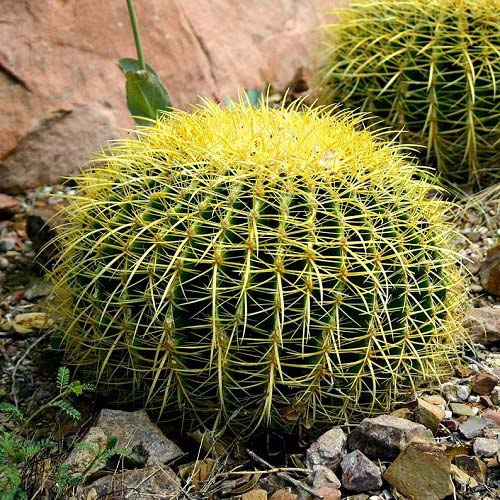
This swollen spherical cactus is great to grow as part of a winter garden or on the windowsill. It prefers sunny places and well-drained soils and regular watering in summer.
Its bell-shaped flowers are up to 5 cm in diameter and appear after the plant has reached 30 cm in diameter.
Botanical name: Echinocactus Grusonii
Flowering time: spring
24. Chin Cactus
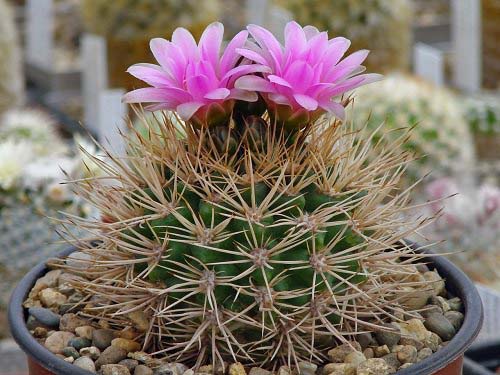
The Chin Cactus originates from Argentina where it grows at altitudes between 800 and 1550 meters above sea level. It is one of the most beautiful species in the cacti family because of its attractive lilac and fragrant flowers.
You can easily recognize this kind with its single matte green and spherical stem and straight needle-like spines.
Botanical name: Gymnocalycium neuhuberi
Flowering time: summer
25. Strawberry Hedgehog Cactus
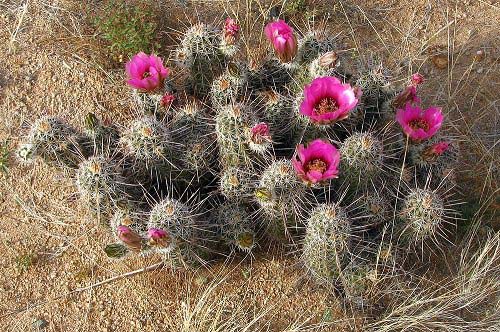
The Strawberry Hedgehog Cactus grows in clusters with up to 20 stems. It is commonly used as a landscape plant in its native areas and as a potted plant in other regions.
It features small stems covered with heavy spines. The flowers appear at the upper half to one-third of the stem and are in magenta color and funnel shape.
Botanical name: Echinocereus engelmanii
Flowering time: summer
26. Peanut Cactus
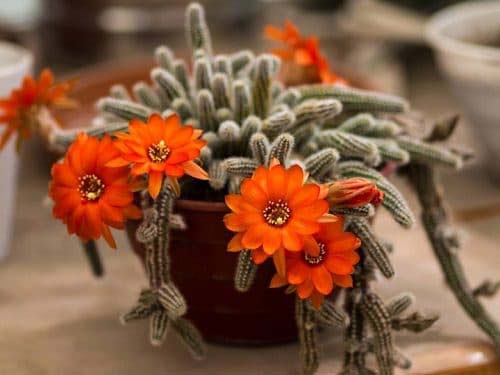
The peanut cactus is one of the best cascading succulents you can easily grow in your garden. It features long, finger-like stems covered with soft spines.
It develops clumps which give it the charming cascading effect. The name comes from the shape of the new sprouts which look like peanuts. The cactus cannot perform photosynthesis this is why it should be planted over other cacti to survive.
Botanical name: Echinopsis chamaecereus
Flowering time: summer

